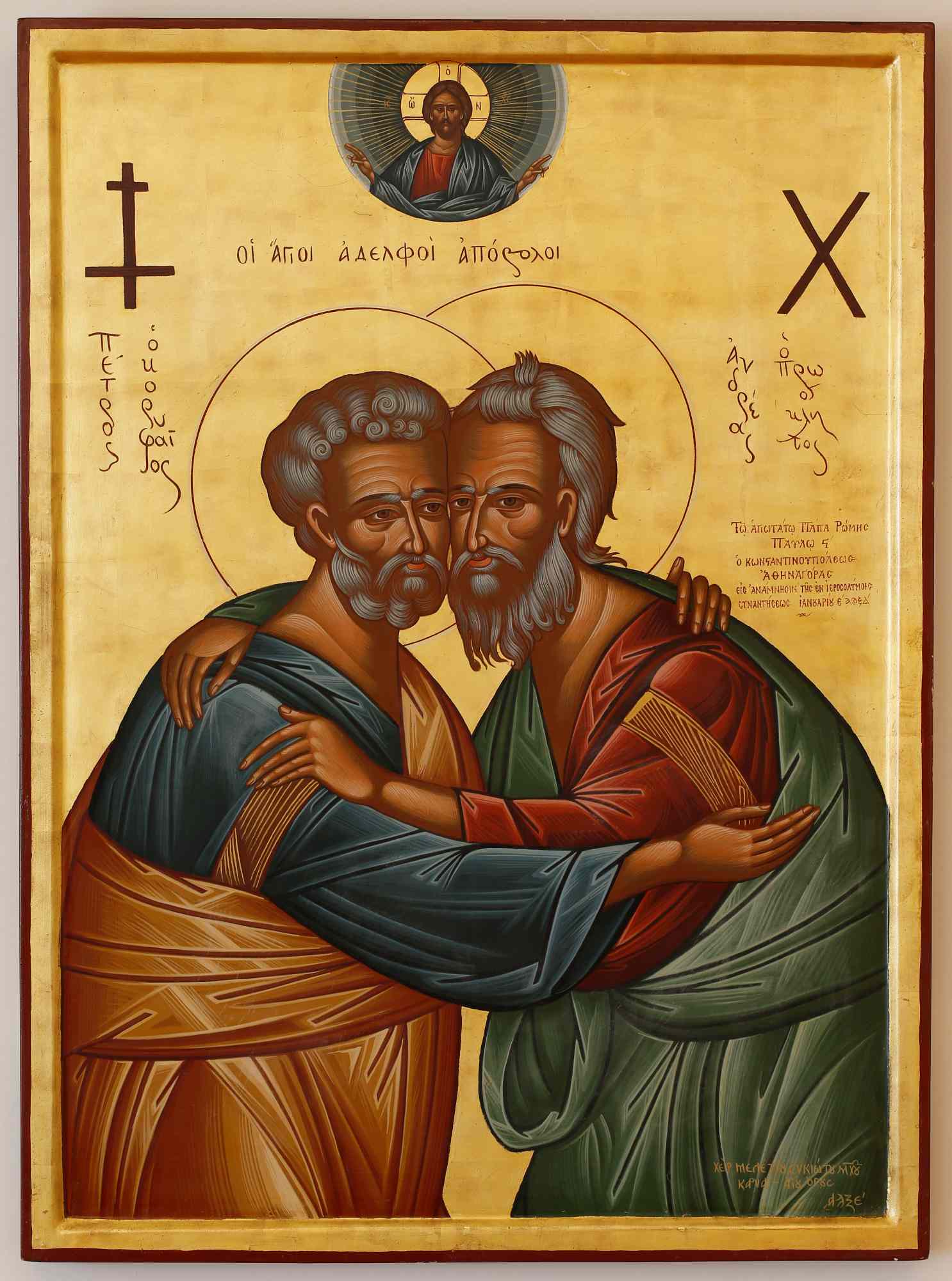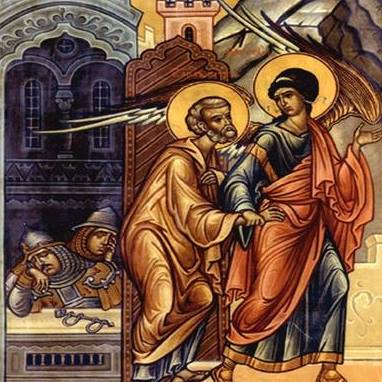UNITY IS NOT UNIFORMITY
The Development of the Apostolic Churches, a presentation to be given by Fr. Hezekias Carnazzo of the Melkite Eparchy of Newton.
Wednesday, June 30 @ 8 – 9 p.m. ET
REGISTER here
UNITY IS NOT UNIFORMITY
The Development of the Apostolic Churches, a presentation to be given by Fr. Hezekias Carnazzo of the Melkite Eparchy of Newton.
Wednesday, June 30 @ 8 – 9 p.m. ET
REGISTER here
 As we celebrate both the mystery of baptism and the search for Christian unity through dialogue, we see the unity of the two in the sacramental mystery of our baptism: “The fact that our churches share and practice this same faith and teaching requires that we recognize in each other the same baptism and thus also recognize in each other, however “imperfectly,” the present reality of the same Church. By God’s gift we are each, in St. Basil’s words, “of the Church.” (Orthodox-Catholic Theological Consultation, “Baptism and ‘Sacramental Economy’: An Agreed Statement, 1999). Ecumenism is the search for unity among all Christians. Unity must be established on truth, but we know that God is Truth (John 14:6).
As we celebrate both the mystery of baptism and the search for Christian unity through dialogue, we see the unity of the two in the sacramental mystery of our baptism: “The fact that our churches share and practice this same faith and teaching requires that we recognize in each other the same baptism and thus also recognize in each other, however “imperfectly,” the present reality of the same Church. By God’s gift we are each, in St. Basil’s words, “of the Church.” (Orthodox-Catholic Theological Consultation, “Baptism and ‘Sacramental Economy’: An Agreed Statement, 1999). Ecumenism is the search for unity among all Christians. Unity must be established on truth, but we know that God is Truth (John 14:6).
The Truth that is God, we as human beings must state in human words. No human word can grasp the whole truth that is the Word. There are many different words and formularies, and even that which is certainly true can be expressed in different ways. Even very basically, that which was expressed in Greek, must for most of us be translated into English words! To express the truth requires hard work, understanding and discernment. The way of ecumenism is through dialogue, to strive to see in our limited human formularies what is the unchanging truth and what is not genuine. We see this especially in the dialogues between Catholics and the Oriental Orthodox Church, and also between the Orthodox and the Oriental Orthodox Churches, where the differences in formulary have been recognized to be semantic and not essential.
The opposition to ecumenism, however, is fundamentalism. Fundamentalism rises from an underlying human need to be certain of one’s own self-righteousness. How I believe is right and everyone else is wrong. Deep-seated fundamentalism leads eventually to intolerance, ideology imposed on people, hatred and eventually violence. The world today is soaked through with hatred ideology and violence, with the dehumanization of “the other.” It is not a good atmosphere for the gospel of ecumenism. But as St. Paul said, “Preach the word! Be ready in season and out of season. Convince, rebuke, exhort, with all long-suffering and teaching” (2 Timothy 4:2). If two people disagree, but have a good heart, they can find the common truth through dialogue. Sometimes we point to history as the taking of a strong stand, of condemning those who have the wrong “formularies,” as the righteous rejection of “heresies.”
Unity, Communion (Koinonia) Fostering the spiritual unity of Christ’s church And Promoting the Unity of all Christians (ecumenism)
From the Pastoral Letter of His Beatitude Sviatoslav Fostering and Serving Unity
The Acts of the Apostles convey a sense of profound unity which existed among the members of the first community of Christ’s disciples: “The community of believers was of one heart and mind, and no one claimed that any of his possessions was his own, but they had everything in common”.(Act 4:32). This spiritual state of being of the first Christian community can be expressed with the term koinonia (communion) which conveys unity, harmony and common life. To be Church is to abide in the communion of the Holy Spirit, the grace of our Lord Jesus, and the love of God the Father. Thus, the unity of the church is an icon of the unity of Persons of the Holy Trinity. This unity can be seen on different levels: on the level of the Universal and Particular Church, the eparchy, and the individual parish. It may happen that through our weakness and sinfulness we do not reflect this unity. Ever aware of this, we all must cherish and foster unity, preserving full communion with the successor of the apostle Peter, the Holy Father, with the hierarchy of our Church, with the local bishops and pastors who act in their name.
The parish is a community of communities. In a parish there will be various prayer groups, brotherhoods, and youth organizations. All of these are called to strengthen unity and love among the members of the parish community. By supporting one another through prayer, by sharing God’s gifts and working together in a Christ-like spirit of service, we will be able to bring to life our synodal program: “Holiness of a united people of God.” We cannot be indifferent to the fact that the descendants of the Baptism under St. Volodymyr today are divided and estranged from one another. At the Last Supper, Christ prayed to His Heavenly Father for His disciples, “that all may be one” (John 17:21). Bearing in mind these words of Christ, I sincerely ask you all today – let us pray for the unity of the Church, let us pray for the restoration of unity of all the churches of the Kyivan tradition. And above all, in the spirit of the love of Christ, let us make every effort to avoid any words or actions which could damage our brothers and sisters in Christ or offend them. Even though at times we may be subjected to mockery and pressure, let us not give in to the temptation to respond to evil with evil. May Christ’s prayer for his wrong-doers and the teaching of the Apostle of the Nations become a testament for us: “Do not be overcome by evil, but overcome evil with good” (Rom 12:21).
 Our Lord says of Peter, “Blessed are you, Simon son of Jonah. For flesh and blood has not revealed this to you, (Simon has confessed Jesus to be the Messiah, the Son of the living God) but my heavenly Father. And so I say to you, you are Peter [the rock], and upon this rock I will build my church, and the gates of the netherworld shall not prevail against it” (Matthew 16:17-18).
Our Lord says of Peter, “Blessed are you, Simon son of Jonah. For flesh and blood has not revealed this to you, (Simon has confessed Jesus to be the Messiah, the Son of the living God) but my heavenly Father. And so I say to you, you are Peter [the rock], and upon this rock I will build my church, and the gates of the netherworld shall not prevail against it” (Matthew 16:17-18).
The faith of Peter is the very foundation of Christ’s Body, the Church. And it is established on this impetuous, sometimes weak and imperfect human being, a man who denied Jesus, but wept in repentance, a man who walked on water but began to sink because his faith weakened, a man who was indeed to lead the Church, but only in the grace of the Spirit. Today we celebrate his chains, the imprisonment he suffered because of his faith. Therefore, he is a model for all of us – faith is our “rock,” but we are weak, we sin, we need the forgiveness and grace of God to live a Christian life. And, like Peter, we will have to suffer because of our faith. Peter likewise is the model for the whole Church, for its bishops and leaders, who often, like Peter, stumble and fall, yet on these weak human beings faith is secured by the operation of the Holy Spirit. The Roman Church celebrates the chains of Peter on the 18th, and a week later, the 25th, the conversion of Saul, who from a persecutor of the faithful, was transformed by a vision of our Lord, into Paul, a great Apostle. To mark these two feasts, the Chair of Unity Octave was established, from January 18 to the 25, now called the Week of Prayer for Christian Unity.
The Byzantine Church celebrates great Church teachers on these two days, Saints Athanasius and Cyril of Alexandria on the 18th and Saint Gregory the Theologian on the 25th. It is a perfect time to pray for the necessary unity of the one faith, which can be established only on the one God, Father, Son and Holy Spirit, founded, as it is, on our weak human powers which have divided the garment of faith and which can find union only in the power of the Holy Spirit.